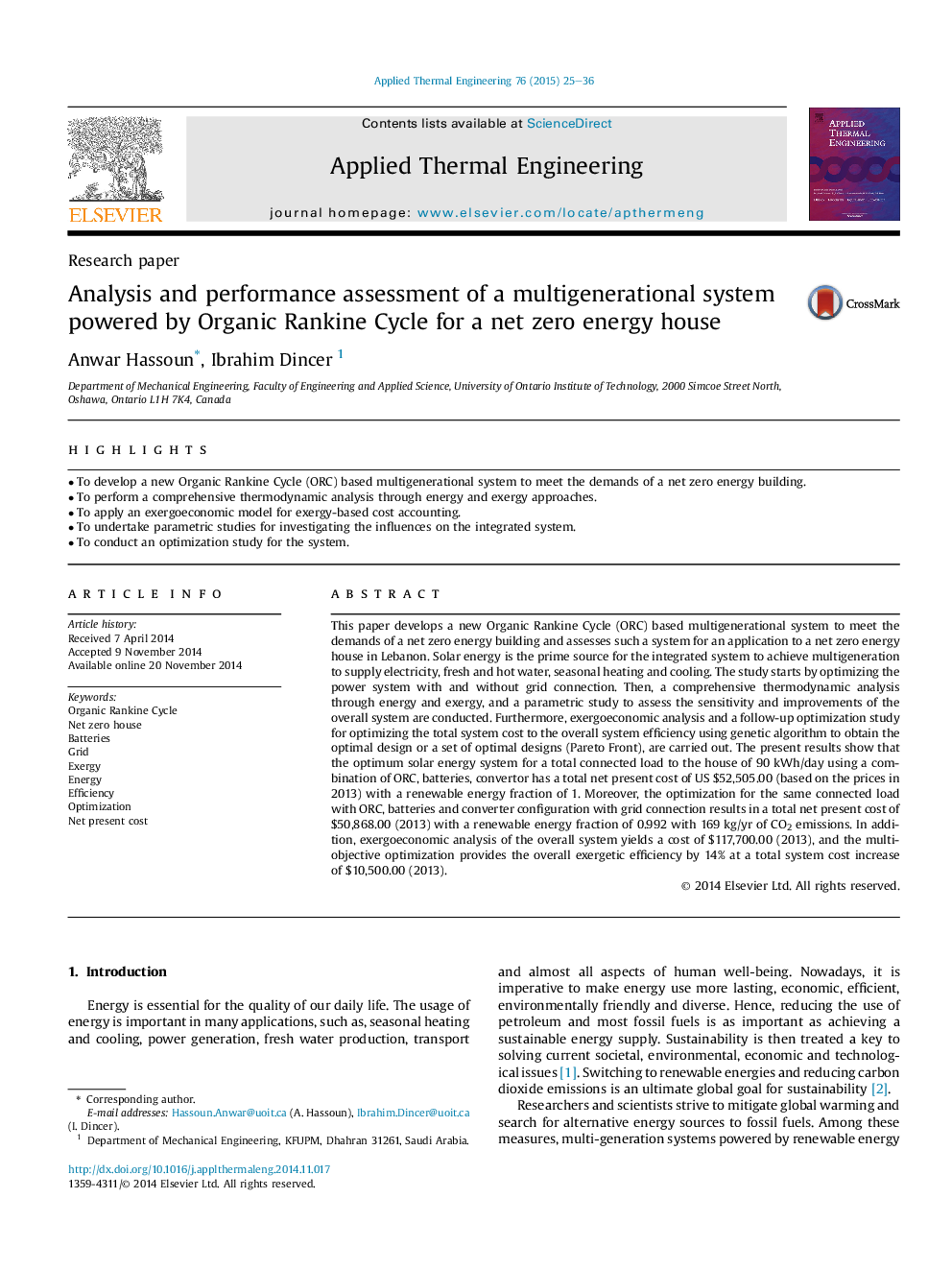| کد مقاله | کد نشریه | سال انتشار | مقاله انگلیسی | نسخه تمام متن |
|---|---|---|---|---|
| 645982 | 1457152 | 2015 | 12 صفحه PDF | دانلود رایگان |
عنوان انگلیسی مقاله ISI
Analysis and performance assessment of a multigenerational system powered by Organic Rankine Cycle for a net zero energy house
ترجمه فارسی عنوان
تجزیه و تحلیل و ارزیابی عملکرد سیستم چند گانه ای که توسط چرخه رونق ارگانیک برای یک خانه انرژی خالص ساخته شده است
دانلود مقاله + سفارش ترجمه
دانلود مقاله ISI انگلیسی
رایگان برای ایرانیان
کلمات کلیدی
چرخه رنکین ارگانیک، خالص خانه صفر، باتری، توری، اگزرژی، انرژی، بهره وری، بهینه سازی، هزینه خالص فعلی،
موضوعات مرتبط
مهندسی و علوم پایه
مهندسی شیمی
جریان سیال و فرایندهای انتقال
چکیده انگلیسی
This paper develops a new Organic Rankine Cycle (ORC) based multigenerational system to meet the demands of a net zero energy building and assesses such a system for an application to a net zero energy house in Lebanon. Solar energy is the prime source for the integrated system to achieve multigeneration to supply electricity, fresh and hot water, seasonal heating and cooling. The study starts by optimizing the power system with and without grid connection. Then, a comprehensive thermodynamic analysis through energy and exergy, and a parametric study to assess the sensitivity and improvements of the overall system are conducted. Furthermore, exergoeconomic analysis and a follow-up optimization study for optimizing the total system cost to the overall system efficiency using genetic algorithm to obtain the optimal design or a set of optimal designs (Pareto Front), are carried out. The present results show that the optimum solar energy system for a total connected load to the house of 90Â kWh/day using a combination of ORC, batteries, convertor has a total net present cost of US $52,505.00 (based on the prices in 2013) with a renewable energy fraction of 1. Moreover, the optimization for the same connected load with ORC, batteries and converter configuration with grid connection results in a total net present cost of $50,868.00 (2013) with a renewable energy fraction of 0.992 with 169Â kg/yr of CO2 emissions. In addition, exergoeconomic analysis of the overall system yields a cost of $117,700.00 (2013), and the multi-objective optimization provides the overall exergetic efficiency by 14% at a total system cost increase of $10,500.00 (2013).
ناشر
Database: Elsevier - ScienceDirect (ساینس دایرکت)
Journal: Applied Thermal Engineering - Volume 76, 5 February 2015, Pages 25-36
Journal: Applied Thermal Engineering - Volume 76, 5 February 2015, Pages 25-36
نویسندگان
Anwar Hassoun, Ibrahim Dincer,
